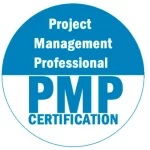Most people think of resume writing as something that should be left to their early career years, but it’s not! Whether you have five or twenty years of experience under your belt, there are still plenty of things you can do to improve your resume and get ahead in the job market.
Read on to learn more about some resume-writing tips for experienced professionals.

What Is a Resume?
A resume is a document that contains a summary of your education, work experience, hard and soft skills, and other qualifications for a certain job. It is usually accompanied by a cover letter and submitted as an application for a job.
The resume is the most important document in the process of applying for jobs. Thus, it has to be concise, clear, and easy to read.
But in today’s competitive job market, you need to stand out from the crowd to get noticed by recruiters or employers when searching for jobs online. A well-written resume can make all the difference in landing your dream job!
However, a resume is often confused with a cover letter. So, what sets the two apart?
Resume Vs. Cover Letter
The resume is a vital document for any job seeker. It should be tailored to the specific requirements of the job you are applying for and should highlight your skills and experience appropriately.
The cover letter, on the other hand, is an optional document that you can send in addition to your resume to provide more details about why you’re the best candidate for a position. It is an important supplement that provides a more personal touch but is not always necessary.
If you’ve done your research and crafted a tailored, compelling resume, then it may not be necessary to submit a cover letter as well.
A Guide to Writing a Resume for Experienced Professionals
The purpose of a resume is to provide information on your skills and experience to potential employers and help them decide whether you are qualified for the position they are offering.
The first step in creating a resume is deciding what job you are applying for. For example, if you are applying for an accounting position, you will want to highlight any relevant accounting work experience or education related to accounting. Likewise, if you are applying for a marketing position, you will want to highlight any marketing-related experience or education on your resume.
The next step in creating a resume is organizing it into sections such as work history, education history, interests/hobbies, and other information about yourself. And finally, consider these resume-writing tips:
Tip #1: Keep it relevant.
When you have years of work experience under your belt, it can be hard to know where to start when writing a resume. But according to experts, here are some things you can do to ensure your resume remains relevant:
- Your resume should highlight your experience and specific skills that are most relevant to the position you’re applying for. This will show employers that you have what they need and will increase your chances of being selected for the position.
- Include a cover letter that relates specifically to the job posting you’re applying for and provides details about why this position interests you and what sets you apart from other candidates.
- Update it whenever you have a new job offer or a promotion.
Be careful how often you update your resume, though. You don’t want to overdo it and make it seem like you’re desperate for a job!
Tip #2: Keep it short.
Your experienced resume should include your career objective, a list of your skills, and the titles of your previous jobs. Ensure you only include information relevant to the type of work you’re applying for.
Additionally, it helps to include information on how you were an asset to your previous employers. If available, you may include any licenses or certifications you hold and any awards or accolades you’ve received in the past.
Here is a detailed guide on how to write a professional background to keep your resume short yet relevant.
Tip #3: Use keywords.
In today’s competitive job market, experienced professionals need to be savvy when it comes to creating a compelling resume. It may seem common sense, but knowing what keywords to include in your resume is essential.
For example, if you’re applying to a job opening in the marketing field, you’ll want to include words like campaign management and advertising in your resume.
The following list includes some of the most important words to include on your resume:
- Leadership
- Public Speaking
- Networking
- Salesmanship
- Event Planning
- Teamwork.
Tip #4: Highlight what you’ve accomplished.
If you are an experienced professional, use your resume to highlight your accomplishments and how they make you the perfect candidate. Think about what you want the hiring manager to know about you and write it down clearly, concisely. Your resume should be a summary of who you are, what you have done and why someone should hire you.
Put your accomplishments at the top. Start with what accomplishments you are proud of, followed by specific examples that illustrate these accomplishments. Leave details to be discussed in interviews if offered or desired. This will help show recruiters that there is something compelling about you that would make them want to learn more during an interview.
Tip #5: Use quantifiable data.
The more relevant information you provide in your resume, the better. Quantifiable data includes numerical measurements of productivity, tasks completed, and deliverables met. Numbers on a resume are persuasive because they show a candidate’s skills and experience while providing numbers that hiring managers can measure against their own requirements.
Expert advice suggests including at least five quantifiable achievements in each section of your resume: one quantitative accomplishment should be included in the Education section, two quantifiable accomplishments should be included under Experience, one achievement should be listed under Professional Development, and the last should be listed under References.
For example, if you have attended two conferences to present research findings in the past year, list them both. If you led a team of three to complete a project and exceeded expectations by 20%, list that accomplishment as well.
How many? In terms of how many quantifiable accomplishments to include on your resume, it all depends on how much experience you have; the general rule is only to put those figures with which you’re comfortable.
If it doesn’t come easily or feel natural for someone with years of experience, leave it off; however, if this person has been with the company for less than six months and didn’t accomplish much yet, then he may want to leave out his high school GPA or courses he took as an undergraduate student.
Tip #6: Use active language.
One of the most important parts of your resume is the language you use. It is not just about what you say but how you say it as well. Use active language in your resume to show that you are an active person who can take on challenges and get things done.
Active language is any sentence containing an action verb, showing the reader your accomplishments. For example, “I led a team of 15 people” instead of “I managed a team of 15 people.”
You should also use words like “achieved,” “accomplished,” or “completed” to show that you are able to finish tasks and reach goals.
Tip #7: Check your spelling and grammar.
The resume is the first impression you make on a potential employer. It is your opportunity to show what you can offer and why you are the best person for the job. A poorly written resume will only put off employers and might even get thrown out before it is read. A well-written resume, on the other hand, will get an employer’s attention and make them want to learn more about your qualifications.
Hence, it is important to proofread your resume for grammar and spelling errors because it reflects poorly on your work ethic as a professional and may make you seem unprofessional.
It is important to have a well-written resume because it is the first impression you make on a potential employer. With the help of an grammar and spelling checker tool, Grammarly or similar ones, you can make sure that your resume is error-free and ready to be sent out.
Tip #8: Get a second opinion.
The resume is a summary of your professional career, and it’s your chance to sell yourself to an employer. It’s important that you have the skills and experience that the company is looking for. And it’s also important that you present this information in a way that makes you stand out from other candidates.
To do this, getting feedback from others before submitting your resume is often helpful. Ask someone who knows about your field to read over what you’ve written and give their opinion on how well it communicates the value of your skills.
Tip #9: Save it as a PDF.
If you’re an experienced professional, you should save your resume in PDF format. It’s more difficult to alter a PDF than a Word doc, and it’s easier to make sure that it displays correctly on any device.
Plus, some employers might use an applicant tracking system (ATS) that scans your resume and only selects the parts that are relevant to the job description. This means that if you submit a PDF, the ATS will be able to scan it as is.
If you submit a Word document, the ATS will have to read through all of it in order to find what it needs. This can lead to slower processing times and fewer applicants selected for interviews.
Tip #10. Use a resume remplate and improve it.
There are many resume templates out there, and you can start with these to save time and effort. Then, adjust your own knowledge and experience to show your work in the best possible light.
Here are some basic tips for improving a template resume:
- Include your skills and abilities. Did you use a particular software? Great! You have experience using it, which means that hiring managers will be impressed. Using the skills section is important when looking at a template resume because if not done well, it can end up looking empty or lazy.
- Do not pad your resume unnecessarily. Overstuffing your resume wastes space and distracts you from the information that matters. Remember, this document is a snapshot of who you are and what you can do, so only include relevant information.
- Use an objective statement to help guide readers through your qualifications, especially for those who may not know what position they’re applying for.
Writing a Professional Resume Should Be Easy!
The resume is the most important document that you will ever write. It has a significant impact on your career and future. If you are a professional, getting it right the first time is essential.
A resume should be tailored to the position you are applying for and should be focused on your strengths and accomplishments. It should not be too long or too short, but somewhere between one page and two pages.
There are many other things that you can do to make your resume stand out from the rest of the applicants’ resumes, like adding a cover letter, including keywords from the job description, highlighting relevant experience with bulleted lists or using bold text for headings. Hopefully, this article gives you a head start.








